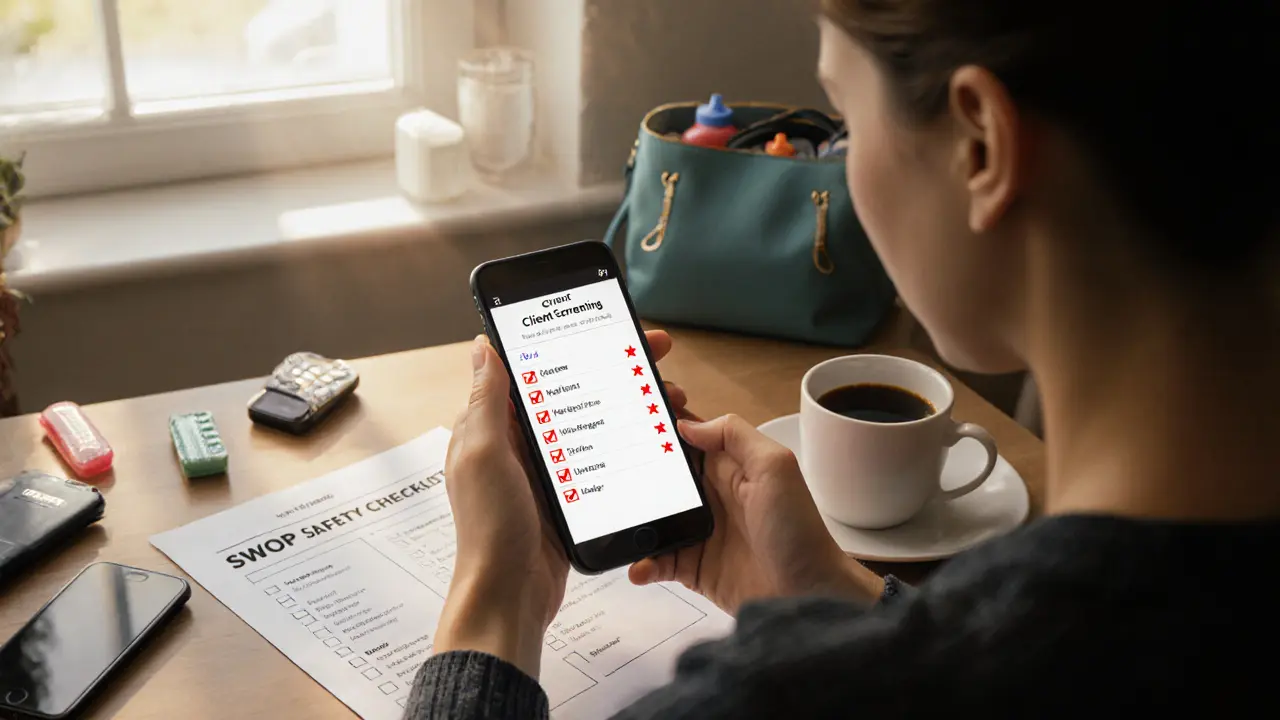Sex Worker Safety: Practical Tips to Stay Safe on the Job
Working in the adult industry can be rewarding, but it comes with real risks. Knowing simple, everyday steps can mean the difference between a smooth night and a dangerous one. Below are clear, no‑fluff strategies you can start using right now.
Know Your Legal Rights
First thing’s first: find out what the law says in your city or country. Some places decriminalise sex work, others treat it like any other job with specific protections. Carry a quick reference sheet or bookmark a reliable site that lists local statutes, reporting options, and where to get legal aid. When you know the rules, you can spot red flags faster.
Everyday Safety Practices
Screen every client. Ask for a photo, a social media profile, or a reference from a trusted source. Trust your gut—if something feels off, it probably is. A short video chat before meeting can save a lot of trouble.
Pick safe meeting spots. Public places like cafés or hotel lobbies work for initial contact. If the job requires a private location, make sure someone you trust knows where you are and when you expect to be back.
Use a dedicated phone. A separate number or app that disappears after calls keeps your personal life private and lets you block numbers instantly if needed. Turn on location sharing with a friend you trust for the duration of the meeting.
Learn basic self‑defence. Even a few moves—like learning how to break a wrist hold or use your body weight to push away—can buy you time to escape. Keep a small personal alarm or pepper spray if it’s legal in your area.
Stay on top of health checks. Regular STI screenings, vaccinations, and mental‑health check‑ins aren’t optional. Find a clinic that respects your privacy and schedule appointments quarterly. Carry a small first‑aid kit for minor cuts or burns.
Know how to report abuse. Keep contact details for local police, a sex‑worker hotline, or a community organization that can intervene quickly. Document any threats with screenshots or notes—this evidence helps authorities act.
Build a support network. Connect with other workers through trusted forums, social groups, or local advocacy groups. Sharing experiences lets you learn new safety tricks and gives you people to call when you feel unsafe.
Protect your money. Use cash‑less payments when possible, and keep a backup stash hidden in a secure spot. Avoid handing over large sums in person; if a client wants to pay cash, meet in a public place first to verify the amount.
Take care of your mind. The job can be stressful, so schedule time for hobbies, exercise, or meditation. If you feel overwhelmed, talk to a therapist familiar with sex‑work issues or join a peer‑support circle.
Staying safe isn’t a one‑time checklist—it’s a habit you build over time. Use these tips as a starting point, adapt them to your own routine, and keep checking in with yourself and your community. Your safety matters, and it’s worth the effort to protect it every day.
30 October 2025
Lincoln Thorne
Essential safety strategies for escort girls in 2025, including client screening, location sharing, legal rights, and emergency protocols to reduce risk and stay protected on the job.
Continue Reading...
28 October 2025
Miles Thorne
Staying safe as a sex worker means using smart screening, trusted tools, clear boundaries, and strong support networks. This guide gives practical, real-world steps to reduce risk and stay in control-every single time.
Continue Reading...








